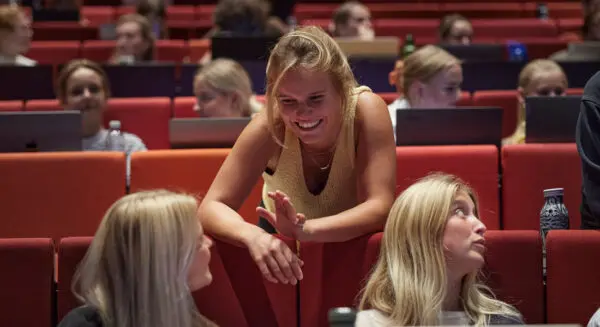
Thessaloniki, Greece
Analysing your Qualitative Data with MAXQDA
When:
26 August - 29 August 2025
Credits:
4 EC
Read more
Social Sciences
When:
21 August - 25 August 2023
School:
GESIS Summer School in Survey Methodology
Institution:
GESIS-Leibniz Institute for the Social Sciences
City:
Country:
Language:
English
Credits:
4 EC
Fee:
500 EUR

Many social scientists are interested in understanding how social networks emerge and/or how they shape individual behavior. These questions of network formation (“selection”) and network effects (“influence”) concern both human individuals and organizational units. Examples for selection are the emergence of friendship between people or cooperation between firms; examples for influence are adolescents start smoking because of their friends or firms copying other firms' strategies. Selection and influence are inherently dynamic processes, but few social scientists have been trained in collecting, processing, and analyzing longitudinal social network data.
This course guides participants who intend to collect and/or analyze longitudinal social network data. For this purpose, we rely on a mix of interactive lectures, guided examples, and practical exercises. We use R for all guided examples and exercises, and we use and provide exemplary school-based friendship network data.
On Day 1, we introduce basic concepts, typical research questions, and longitudinal social network data. Participants can bring forward their own research aims.
On Day 2, we cover the design of longitudinal social network studies and the collection of longitudinal social network data, discussing both general challenges and, if applicable, participants' own data collection projects. Participants further learn how to handle and manage network data in R by guided examples and exercises. This includes the visualization of networks and the calculation of descriptive network measures.
On Days 3 and 4, we address how to analyze selection (Day 3) and influence (Day 4) with stochastic actor-oriented models (SAOM). On both days, we first introduce the respective model and show how to specify and estimate it using R. Then we practice how to interpret the model results and graphically communicate findings.
On Day 5, we address several advanced topics that participants likely will encounter when working with SAOM, such as convergence in parameter estimates, goodness of fit, and different means of analyzing multiple networks. We close by giving participants group-based and individual feedback on their own projects.
Lars Leszczensky is a postdoctoral research fellow at the Mannheim Centre for European Social Research at the University of Mannheim. Sebastian Pink is a postdoctoral researcher at the Chair of General Sociology at the University of Mannheim.
Participants will find the course useful if they:
- (intend or consider to) collect longitudinal social network data.
- (intend or consider to) analyze longitudinal social network data to help them answering substantive research questions.
- already are analyzing social network data and want to discuss their work.
Prerequisites:
- Basic knowledge in quantitative data analysis
- Prior knowledge of R is not necessarily required, but we recommend participants without such knowledge to familiarize themselves with R before the course
- Prior knowledge of social network analysis is helpful but not necessarily required
By the end of the course participants will:
- know how to design and conduct a longitudinal social network study.
- be able to manage and handle longitudinal network data.
- know how to exploit the potential of stochastic actor-oriented models for their research aims.
- understand how to specify and estimate stochastic actor-oriented models for network dynamics in R.
- have learned how to interpret and communicate results of stochastic actor-oriented models.
Fee
500 EUR, Student/PhD student rate.
Fee
750 EUR, Academic/non-profit rate. The rates include the tuition fee, course materials, the academic program, access to library and IT facilities, and coffee/tea breaks.
When:
21 August - 25 August 2023
School:
GESIS Summer School in Survey Methodology
Institution:
GESIS-Leibniz Institute for the Social Sciences
Language:
English
Credits:
4 EC

Thessaloniki, Greece
When:
26 August - 29 August 2025
Credits:
4 EC
Read more

Lugano, Switzerland
When:
08 August - 09 August 2025
Credits:
0 EC
Read more

Copenhagen, Denmark
When:
28 July - 21 August 2025
Credits:
7.5 EC
Read more